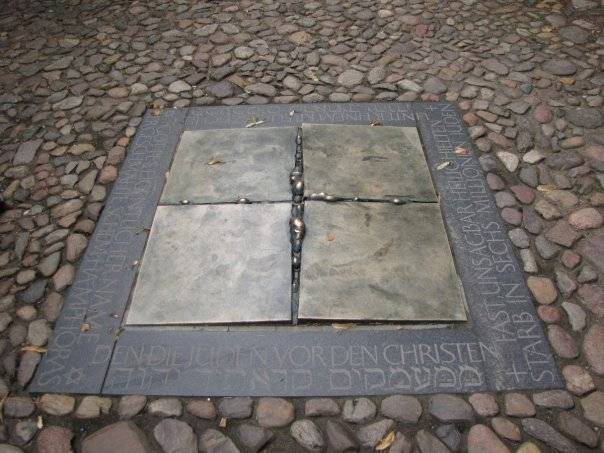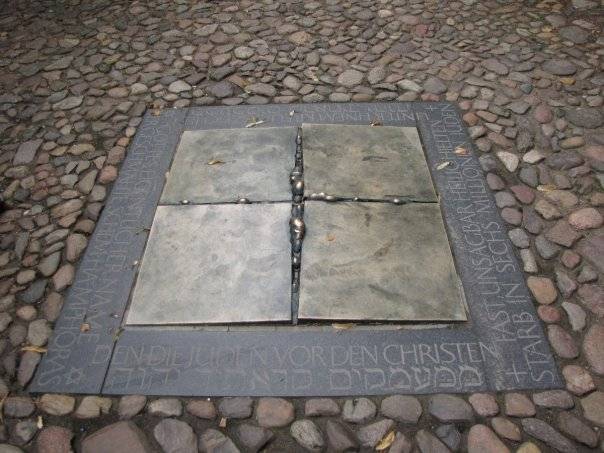 According to JNS News (8/17/2016), Special Envoy to the United Nations Laurie Cardoza-Moore criticized the ELCA’s resolution that the U.S. stop giving military aid to Israel. She said, “The Lutheran Church’s decision to single out the Jewish State for rebuke is nothing short of anti-Semitic heresy based on its anti-Semitic roots. It would seem that the Lutheran Church has chosen to follow in the path of their founder Martin Luther, who, later in his life, became a vehement anti-Semite.”
According to JNS News (8/17/2016), Special Envoy to the United Nations Laurie Cardoza-Moore criticized the ELCA’s resolution that the U.S. stop giving military aid to Israel. She said, “The Lutheran Church’s decision to single out the Jewish State for rebuke is nothing short of anti-Semitic heresy based on its anti-Semitic roots. It would seem that the Lutheran Church has chosen to follow in the path of their founder Martin Luther, who, later in his life, became a vehement anti-Semite.”
Her statement exhibits some common opinions among the general public. Yet it reveals serious misunderstanding on many levels.
- The ELCA does not speak for the Lutheran Church. They speak only for the ELCA.
- The Lutheran Church was not founded in the 16th century by Martin Luther. Lutheran churches belong to historic Christianity and advocate biblical, creedal Christianity.
- Lutheran churches should not pontificate on politics in the Middle East. The political scene over there is extremely complex, and the church has no special wisdom on that topic. Nor is that the church’s calling.
While all of the above points are very important, the biggest point to be made is simply this: Lutheran churches normed by the Scriptures and focused on Jesus, Israel’s Messiah, are not anti-Semitic. The following observations come to mind.
- We thank the God of Israel for the many Jewish Christians throughout the world.
- Toward non-Christian Jews according to the flesh, our view is that of the Apostle Paul in Romans 10. It is not hostile anti-Semitism.
- In the fullness of time the God of Israel sent forth his Son to be Israel’s Messiah, the fulfillment of Moses and the Prophets. The gospel is good news for the Jew first, and also for the Gentile.
- We Gentile Christians have been grafted into God’s Israel (Romans 11). We did not create our own Gentile religion.
- The God of Israel continues to speak to us through Moses and the Prophets. We require our seminary students to learn Hebrew so that they can teach Moses and the Prophets with accuracy.
- Martin Luther was not anti-Semitic. He even specialized in Moses and the Prophets.
- He wrote commentaries on Moses and the Prophets, and he translated them from Hebrew into German so that the common people could understand them.
- Lutheran churches do not affirm everything Martin Luther ever said or every tract he ever wrote. We are not about hero worship. We evaluate everything on the basis of the Scriptures as the norm.
- In terms of history, the Reformation in the 16th century did not give rise to Adolf Hitler.
The ELCA should clarify to the U.N. in the strongest terms and without qualification or mitigation that Lutheran churches are not anti-Semitic. Lutheran churches must reject this charge in no uncertain terms. We are not a heretical sect! The gospel is still good news to the Jew first.


Leave a Reply
You must be logged in to post a comment.